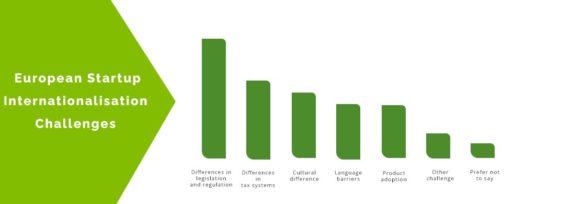Two researchers of ESCP Europe, one of the leading business school in the old continent, recently released an insightful report on the EU startups’ ecosystem, analyzing the landscape they operate in, the opportunities associated and the challenges most of these businesses face[1].
Before digging in to the findings, let’s make some clarity of the definitions. Startup, indeed, is a so widely used term that often its exact meaning could result quite vague.
“A startup is a company working to solve a problem where the solution is not obvious and success is not guaranteed,” says the cofounder of Warby Parker, Neil Blumenthal.
The definition is quite inspiring but not fully addressing the differentiation with SMEs and, if it is true that all the startups are, de facto, SMEs, not all the SMEs are startups.
According to the two ESCP researches the key differences between startups and SMEs are to be found in:
–Age. Startup founders are younger than ten years/ five years depending on the sector.
–Innovation. Product, service or business mode of startups are thought to completely reshape the industry.
–Aim to scale. Intention to grow number of employees and/or markets operated in and its boundaries overlap with the ones of SMEs.
Another important distinction to make is between startups and scaleups, with the seconds having validated their product within the marketplace and have proven that the unit economics are sustainable.[2]
Back to the report, there are few interesting insights about startup founders, job creation, international expansion and challenges. Let’s see them one by one.
Startup Founders:
Startups is an heavily dominated reality with less than 20 percent female founders. Despite a study from the Boston Consulting Group[3], recently proved that women-owned startups are a better bet, the scarcity of female founders seems related to gender disparity when it comes to easiness of securing funding[4] with less than 3% of all venture capital funding, invested in female run ventures.
Another interesting fact to note in the profiling of the startup founder is that average age is 38 years hold and he possess a university degree. As noted by the authors of the study: This goes against the stereotype of a youngster in a garage and rather emphasizes how well-equipped most founders actually are, with competencies acquired through a university education, practical knowledge, and experience.
Job Creation
On average startups operate with a team of twelve employees and they are a key lever for job creation in Europe. The study reported over 18K jobs created in Europe from the sample of companies analyzed. Reality shows much higher number, with over 2M jobs created by startups in US only[5] . Thanks to the possibility of remote working, almost all startups have an international team[6].
International Expansion
The most recurrent question any investor has, when assessing a startup, is always the same: can they scale? This is actually one of the main differences between SMEs and startups. The firsts adhere to the word “small” embedded in their acronym; startups aim to be global and, it is no surprise that 88.0% of participating startups are planning to (further) internationalise in the coming twelve months.
This ambition faces several challenges, with the main one being different regulations:

Challenges
Beyond expansion, startups have further challenges, different across industries and stage of maturity, with one common amongst all: profitability. 86% of the startup respondents expressed concerned about profitability which is, by far, the biggest challenge for any startup, followed by cashflow, seen as a concern by over 70% of respondents.
[1] http://startupmonitor.eu/EU-Startup-Monitor-2018-Report-WEB.pdf
[2] https://www.rocketspace.com/tech-startups/7-key-differences-between-startups-and-scale-ups
[3] https://www.bcg.com/en-ch/publications/2018/why-women-owned-startups-are-better-bet.aspx
[4] https://www.inc.com/sheila-herrling/women-led-startups-arent-getting-funded-theres-a-very-simple-reason-why.html
[5] https://www.census.gov/newsroom/press-releases/2017/business-dynamics.html
[6] From the report: 97.5% international staff in all startups

